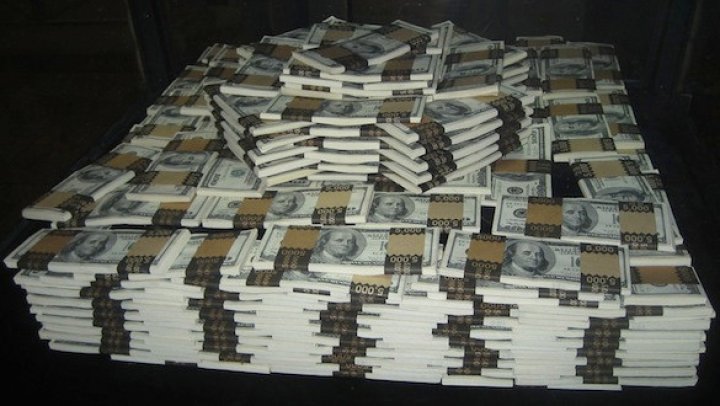Millions of dollars traded in two small streets
 publika
publika
Two small streets in Irbil's bazaar are awash with cash.
Vast sums of money are traded here every day.
The economy of the northern Kurdish region of Iraq revolves around cash and much of it flows through these two short alleys in what is called the dollar bazaar.
The US dollar is a parallel currency in Iraq, accepted in most transactions.
Because the banking system is weak, most money is traded at stalls like these, even by the banks themselves.
As much as 50 million dollars a day may flow through these small streets and the hands of the money sellers who work here.
Dollars, euros, sterling, Turkish lira and Iranian rials are exchanged into Iraqi dinars and back.
Money seller Ghazi Ibrahim says it makes good sense to do business here rather than at the banks.
"Prices here are much lower than in the banks. When you go to a bank they will take the dollar at a lower price. For example, if it's 1,200 a dollar in the market, they'll take it for 1,190 only. And if you want to buy dollars from them, they'll give it to you for 1,210," he says.
"At the bank, it takes them forever to count the money, there's a lot of paperwork, they check every note, this is fake, that's suspicious. This is a safe and reliable market."
Half a million dollars can move in a single transaction as import-export businessmen seek quick liquidity.
These offices can also send money to other cities in Iraq and abroad, including places like Mosul and Syria, where banks or international traders are not present.
The money sellers seem unperturbed by the shocking amounts of cash flowing around them, saying security is not an issue here — everybody knows everybody and there are security people watching.
"When we see a stranger, someone who has no dollars or any money, just standing around, we inform security, we tell them there's a suspicious guy here, in case he might try to follow one of us," says Ibrahim.
Despite this, one man says he has been robbed of 3,300 US dollars recently and the robber slipped away, uncaught, among the crowds of the bazaar.
The main security issue is not robbery but counterfeit money — that's what the traders mainly watch out for.
"We can identify it easily because we've been working here for a long time," says Khaled another money seller.
They also say that the region's ongoing economic crisis, caused mainly by low oil prices and Iraq's persistent insecurity, has badly impacted their trade.
Before 2014, the market would open at 7 a.m. and they could barely keep up with the flow of money. Now they only start around 10 a.m.